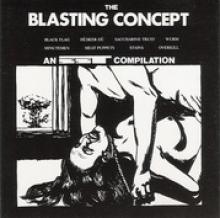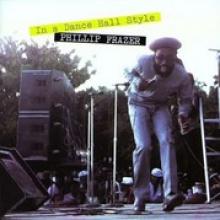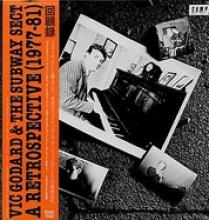Bongo Herman x Bingy Bunny - "Girl You Hold Me" (Video)
The Clean - "Tally Ho" (Video)
Classic Compilations: The Blasting Concept, Vol. 01
If you’re reading this, it’s assumed that you’re familiar with basically everyone represented on Blasting Concept. How else would you have found the write up?
Either way, compilations from the early eighties are beginning to look – in retrospect – like a way to make a buck as much as a way to spread the good word around. With that being said, it’s really interesting to look at the order of the track listing.
As SST was run by Black Flag’s Greg Ginn, it would make sense that tracks from his band would sit up there at the beginning. That’s not the case, though. So, it’s possible to figure Ginn was attempting to make listeners take in other acts before making it to the meat, as it were.
After understanding that, placing the Minutemen at the disc’s opening makes sense for a variety of reasons. It wasn’t the most pop ready group SST sported, but the band had a great ability to vary its sound. That’s not necessarily expressed here, but the short jabs of politicism, personal and political go a long way towards expressing what the group was all about.
What’s funny, though, is that there’s not an act here contributing multiple songs that takes up more time than Saccharine Trust’s single effort. As per usual, that ensemble toss off some repetitious opening allowing for the remainder of the song to provide space for weird explorations of a few chords. What makes the band – and “A Human Certainty” – so cool, though, is its ability to reign in the disparate musical interests SST was trucking in. There’s a bit of punk, some improve and enough of a vocal hook to perhaps understand Saccharine Trust as the ur-band of the label.
Some lesser known acts turn in a track, like the Stains. And even the Meat Puppets in its early rattlings find a place on The Blasting Concept with punkier voicings of its oddities.
And by the time listeners make it all the way to Black Flag – sitting in the middle of it all – it was probably a shock to hear a few different singers. But that’s what the band means, to a certain extent: constant evolution. There wasn’t a single Black Flag sound, but a range of them. The same can be said for the top tier acts on the label, which are mostly represented here.
It was all still for a buck, but The Blasting Concept easily out stripes most other early eighties’ comps.
The Nomi Song: Eighties' New Wave as Art and Art as Documentary
There’s nothing remarkably unique about the structure or content of Andrew Horn’s The Nomi Song, which focuses on Klaus Nomi’s brief ascent to stardom – even if it was only in Europe.
The standard, who was where at what time and what they saw is all still there. Of course, the fact that Nomi never became a huge star in the states, even if he briefly flirted with David Bowie’s cohort, really relegates most of the interviews to second tier status. It’s not that the folks seated for interviews weren’t interesting, it’s just that no one’s engaging in the way reminiscing stars are.
Aside from that, a great deal of the narrative follows a pretty traditional, he struggled, gained recognition, brushed shoulders with famous folks and had a bit too much of it all before dying young. It’s no one’s fault that life and cliché are frequently the same. Luckily, though, Horn was able to track down an astounding amount of archival footage ranging from Nomi’s first live performance to a few brief moments on Saturday Night Live.
The most engaging portions of the entire endeavor, though, really do come during the earliest period of Nomi’s career as opposed to when he and his record company start ripping off composers and such.
With New York still full of itself after helping birth punk – and yes, innumerable other things – there was a cloistered sect of weirdoes, who for some reason embraced the media concoction that was New Wave. That entire travesty might constitute an entirely different discussion, though.
Either way, Nomi began singing what amounted to low rent arias atop of a band that occasionally approximated the Contortions, if that band was smoothed over a bit. The group was good and Nomi’s voice, while probably not ready for Pucini all proper, easily surpassed just about anyone he was around – including Bowie.
Tossed in alongside all of the odd and surprisingly engaging, if not willfully kitschy sci-fi stuff was the fact that Nomi put his dick in almost anything without too much thought. It wasn’t stated in that manner. But a man who enjoys the company of other men to excess and catches/contracts/whatevers AIDS, which in the end precludes his stardom should be rendered in such terms in film. There’s really never an over mention of his homosexuality – I’d dare say that word isn’t ever uttered. No, it doesn’t and shouldn’t define him. He was a singer and a friend to a lot of folks, but subverting the truth doesn’t do anyone any good. If Nomi was duking it out the entire time he lived in New York, state that. Don’t prance around it.
Good film. Great footage. Kinda awful music.
Venom P. Stinger: For Real and Nasty Punk
I’m working backwards here. Ya’ll should at least be familiar with the Dirty Three. That group has/d its moments of instrumental goodness, if not greatness. And the ensemble counts as the newest outfit incorporating members of the Sick Things and Venom P. Stinger.
The Sick Things, were the earliest collection of these miscreants, a post shall follow soon. But judging from the trajectory of how this looks, it’s not surprising the group didn’t hold together for all that long. After hear Venom P. Stinger, even in it’s reformed incarnation during a live appearance as late as 1991, these men from a land down under (<>cringe</>) probably left pools of blood and heaps of teeth sitting around in bars subsequent to a performance
VPS, though, didn’t last too long either. Maybe five years on the outside, or so. But the group did issue a decent amount of work. And that means, by the time the early nineties rolled around and the general public had been prepared to get an earful of out music, VPS was happy to oblige.
It’s difficult to gauge the crew’s general level of acceptance down under, though. Even if the Dead C have been able to carve out an odd existence in relation to pop, rock and performance, VPS is as abrasive, but in snarling punk kinda way.
Regardless of that, the New York Times saw fit to cover a gig these boys did a while back – even if it was without the original singer.
With that shifted line-up, though, VPS was still able to turn in a nasty, live show as evidenced the document simply titled Live.
Running just a bit over a half an hour, it would seem that there was almost no way VPS would be capable of continuing on much longer. On “PCP Crazy” the almost announced tempo shifts must have let just about all involved with aching limbs, not least of all the drummer. Performing with the group, though, probably resulted in something akin to the good ole runner’s high. That’s really the only way to explain the persistent slathering of noise on these compositions.
As that previous track flounders into “Jaws” there’s an imperceptible shift that might swing past listeners if not for the bass note mamba being plundered as guitar chords become subservient to the general chaos collected here.
Not for nothing, these guys have no peers in their home-country or the States. That’s some for real truth.
Phillip Fraser: Track by Track Reggae Stuffs
Sometimes an album doesn’t speak to some greater concept. Sometimes an album doesn’t really mean anything at all – apart from it just being good music. Phillip Fraser (aka Frazer) doesn’t have a huge following despite doing work with Tristan Palmer for a while. But the recently issued compilation, (poorly) titled In a Dance Hall Style, deserves a bit of attention if not scholarly dissection.
Breaking Up: This lead off track – from Alton Ellis’ catalog - might fit into any effort from JA’s recorded history. There’s not an overwhelming sense of its dubbed trickery. That being said, Fraser’s voice is clearly from an era a bit after the music was actually recorded. A little horn break functions as the bridge – unfortunately, since there were so many different bands involved here, there’s kinda no way to figure who contributed the work.
Moses: Something of an up-temp (for this stylee) biblical track, Fraser simply tells a tale we’re probably all at least a bit familiar with. Decent groove with a bit of latter day synth-sound.
When I Run Out: More of that late period production here with a relatively minimal backing track. Heavy bass, natch. But with the phasing that washes over what functions as a melody, it’s a banger.
Sleepless Night: The melody here counts as one of the more fleshed out. Mostly focused on keys, Fraser’s voice, it’s all high and trembling, fits perfectly with it. Of course, at only four tracks in, listeners might be tiring of the lyrical stuff here.
Girl You Hold Me: If getting bored with traditional love song stuff was a problem, tossing in a cover of Jackie Edwards’ classic track could stave off eyes being shuttered. Somehow, though, Fraser’s performance here almost matches the original.
Please Stay: Maybe the low point of the disc, Fraser’s voice becomes the focus. He’s no hack, but he’s not prepared to star on Broadway either.
Life is So Funny: Decent cut even as it’s subverted by an all too distant guitar track. Lyrical, kind of a bummer as well.
Blood of the Saint: If you don’t recognize this rhythm – “Armagideon Time” – it’s time to reevaluate your life.
Mr. Wicked Man: More traditional topics with a bit of an eighties’ feel, but in that good Peter Tosh sorta way.
Bad Boy: The precursor to Cops? No, but this is one of the heavier tracks here – all roots and groove.
In Every Part of Me: A reimagined Ken Boothe effort, the track almost moves into rock-steady during the opening moments. Not a bad way to end the disc.
The Feeling of Love: From France with Lust
Despite how awful this thing looks OK Judge Revival from France’s the Feeling of Love kinda rules. It’s hard to admit something so willfully hip (read: aware of the market, even if it’s not taking advantage of it) hits home so easily. That’s kind of a bummer.
But it seems like the dude behind Oakland’s Kill Shaman imprint knows what’s what and has set about issuing top tier product. The Moles rule as well, but you probably already knew that.
The thing is, there needs to be some delineation between what gets counted as indispensible and what passable, but not life altering. I’ve rambled about his at length in relation to a slew of other acts. Amping it up here, though, is a sort of ignorant, self centered American view of the world. Do we need to look over seas for acts doing this?
Sure, every write up about the Feeling of Love makes mention of post-punk meanderings, the Velvets and whoever else your garage related act is supposed to aurally reference. And none of that’s inaccurate – lets toss in at least a passing interest in synth stuff like the Screamers and Suicide, the latter not counting for too much.
The amalgam of sounds isn’t shocking and it hangs together as well as one could imagine. But including some caveman/reatard styled drumming on “Beyond the Dirt” works towards a proper appreciation for how simple this music can be while retaining a tautness absent from other works mining the same territory. The track also probably serves to relate these Frenchies back to the Velvets stock and trade in weirded-up rock stuff. Or is it tied to Hippie Johnny?
As with my wondering about just about everything, why are these folks singing in English? I don’t think it’d make a difference as hearing what’s being related just doesn’t seem realistic. But it presents a weird cultural backdrop. Pilfering American sounds, its language and releasing a full length on a label based in California might mean your band should move. It has to be more expensive to live in France than Detroit. And if the Feeling of Love lived in Detroit, rock writers could theorize about how important that part of the world’s been to music – well there and Ann Arbor. But whatever.
As bad as the name of the band is, its music is that good. There’s a mathematical equation in there somewhere, but it doesn’t matter. And neither does my wondering about the choices these guys have made about their band.
Subway Sect: A Retrospective
Everything about Vic Godard (apparently, like the overrated director) and Subway Sect seems like a weird novel, somewhere between Bukowski’s Post Office and a tossed off beat novel. That sounds like a horrendous combination – to read, not necessarily to live. But the resultant effect on Godard’s life has been that of brushing up against folks able to make a go of it as an ‘artist’ (read: musician) even as he’s continued carrying a mail bag in the public service sector.
Being discovered is always a crock, but back in ’76 when it wasn’t all that common to look like a weirdo over there in London, Malcolm MacLaren picked Godard and his friends out of a line as the cohort waited to get into a Sex Pistols gig. Because of the timing and their attire, the music mogul (that should drip with irony) figured all involved for a band. They weren’t, but after that assumption, they became one.
Good thing too. Otherwise, the Punk Festival at London's 100 Club in ’76 would have only counted bands that would go on to be relatively huge. Instead, Subway Sect opened the show, but were most likely over shadowed by the Damned who were as strong a force as the Pistols and devolved into tripe a little afterwards. Either way, on the strength of that performance, Godard and company were able to wrangle a few tours and started cutting singles.
While those early releases did relatively well in the charts, the earliest period of Subway Sect’s existence wasn’t ever documented in proper long player mode. Luckily, though, a number have tracks have been soldered together and been dubbed A Retrospective covering the band from about seventy-seven through eighty-one.
For a collection which was recorded without an admitted center, the twelve tracks hang together surprisingly well. That might be chalked up to a general persistence of vision or just dumb luck. What it doesn’t account for is the fact that a few of the singles here easily rank with the better known efforts from the earliest days of London’s punk scene.
Even if that weren’t the case, the Sect’s rendition of the Velvet Underground’s “Head Held High” from Loaded, a surprising choice, counts as one of the better covers focused on the seminal New Yawk band.
Even if that cover weren’t included, though, listeners could catch roughly the same vibes on “Don’t Split It” along with some Stooges minimalism and enough garage flavor to render the track omni-pleasurable. It doesn’t even matter that the guitar hits the same wrong note every ten seconds or so. Purposeful? Who cares. It rules.
Classic Compilations: Eastern Front, Volume 01
Tagging the first Eastern Front compilation with the word classic really isn’t too accurate. The disc comprises a spate of tracks that tote more historical significance than anything else. Of course, there’re still a lot of folks who eat this stuff up. For what reason, who knows? But I’ll still toss on the Partisans or whatever other second tier Brit punk group I grew up on. So, really there’s no accounting for taste.
Anyway, there’re three Eastern Front discs – the second counting some contemporaries of the folks represented here with the third focusing on metal. Either way, with the huge number of comps being issued back in the early eighties (it was probably easier to wrangle money and material than having one group do it all) more than a few other discs rank as a bit more important and moreover, entertaining.
There’re some big names here, however. D.O.A. contributes a pair of tracks neither of which do too much for its legacy – and really, the band just counts as a time marker in the march towards hardcore’s codification. But a number of the group’s here went on to relative notoriety, deserved or not.
After Warzone’s “Marriage of Convenience” and just before moving into “Yahoo,” the group’s singer says, “You’ll be happy to know, this is our last song.” Probably, show goers were upset. Warzone and bands of its ilk (any ensemble naming themselves after sub-par Japanese hardcore acts) had and continue to have a huge backing. The appreciation is probably more visceral than anything else. The music certainly isn’t any good. But it’s an understandable situation. The utter abandon for anything other than a self constructed set of rules can render a band an interesting thing whether or not it’s any good.
Flipper shows up for a minute and turns in more mediocre work that should cause listeners to wonder why anyone ever cared about the band despite the fact that Krist Novoselic from Nirvana is currently playing bass with them.
The real highlight – maybe the only one – comes from the Offs songbook. The group isn’t generally recalled today for anything. But it rubbed shoulders with groups pretty early on in the Bay Area scene. And regardless of what one might think of ska, the Offs were able to do it relatively well. The track here, “One More Shot,” comes off a bit like the Contortions if that group wasn’t way too wacky. Unfortunately, the three minutes of skronky funk doesn’t make up for the rest of the album, no matter how diverse it is.






